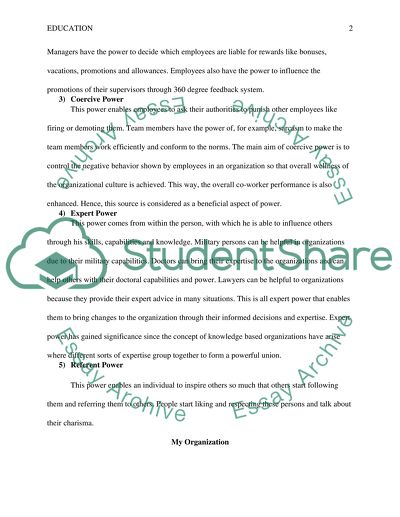Sources of Power in an Organization Essay Example | Topics and Well Written Essays - 1000 words. Retrieved from https://studentshare.org/education/1433503-describe-the-various-source-of-power-then-describe
Sources of Power in an Organization Essay Example | Topics and Well Written Essays - 1000 Words. https://studentshare.org/education/1433503-describe-the-various-source-of-power-then-describe.


